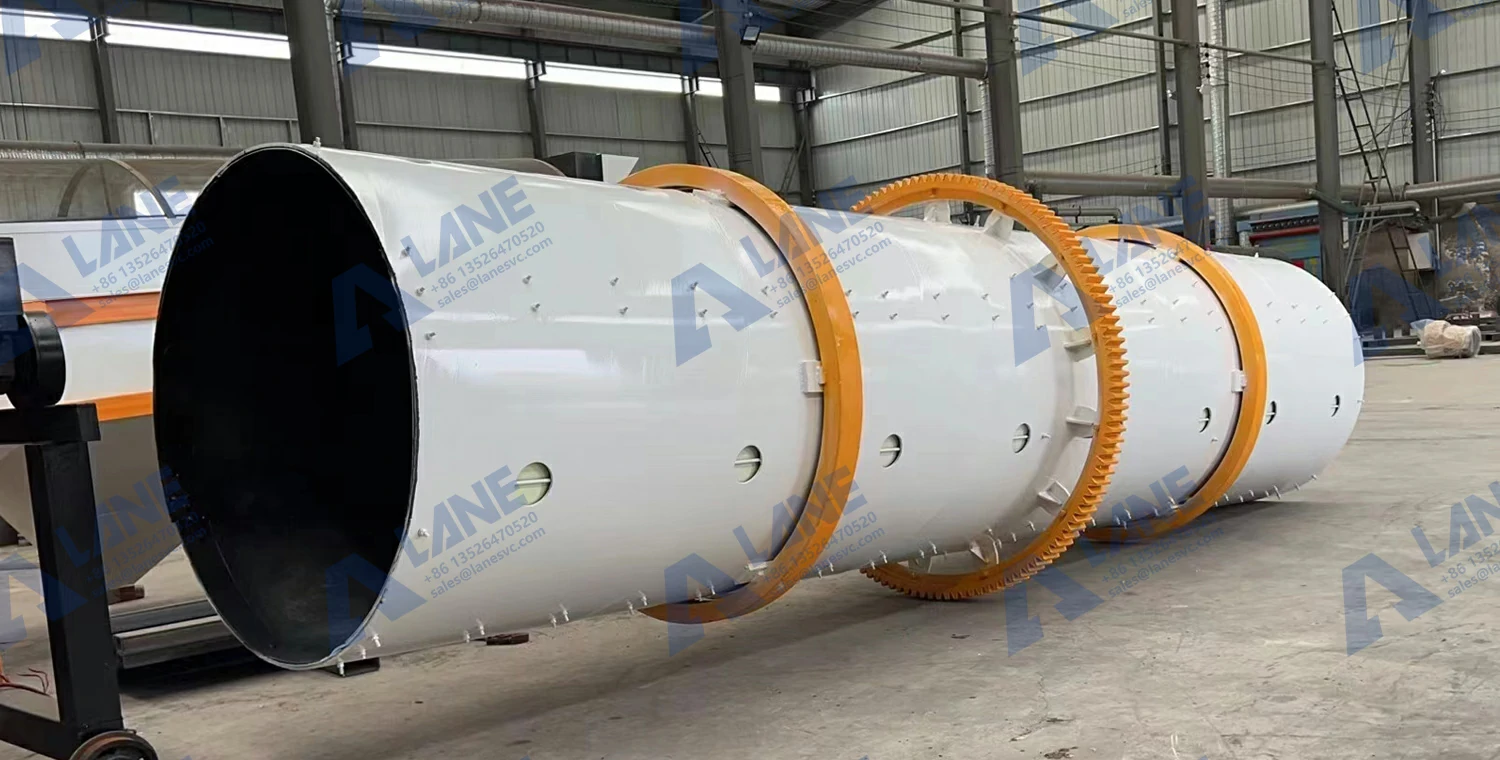1) Rotary drum granulator is a kind of molding machine which can make material into specific shape.
2) Rotary drum granulator is one of the key equipments in compound fertilizer industry, which is suitable for cold and hot granulation as well as large-scale production of high, medium and low concentration compound fertilizer.
3) Its main working method is wet granulation, with the help of the rotating movement of the cylinder, so that the material particles produced between the squeezing pressure agglomeration into a ball.
4) The rotary drum granulator developed by our staff with many years of experience in compound fertilizer production has the features of beautiful appearance, simple operation, low energy consumption, long service life and convenient maintenance.

| Model | Drum size(mm) | Rotation Speed(rpm) | Thickness(mm) | Capacity(tph) | Power(kw) | Tilt Angle(°) |
| LAZR-1060 | Φ1000*6000 | 13 | 10 | 2-5 | 7.5 | 2-2.5° |
| LAZR-1260 | Φ1200*6000 | 13 | 10 | 3-6 | 11 | 2-2.5° |
| LAZR-1560 | Φ1500*6000 | 13 | 10 | 6-8 | 15 | 2-2.5° |
| LAZR-1870 | Φ1800*7000 | 13 | 12 | 8-10 | 18.5 | 2-2.5° |
| LAZR-2080 | Φ2000*8000 | 11.5 | 12 | 10-15 | 22 | 2-2.5° |
| LAZR-2290 | Φ2200*9000 | 11.5 | 14 | 15-20 | 30 | 2-2.5° |
| LAZR-2410 | Φ2400*10000 | 11.5 | 16 | 15-20 | 37 | 2-2.5° |
1) Bracket part: the rotary drum granulator bracket part are made of medium carbon steel plate, channel steel welding, and through the strict quality control and special process requirements.
2) Transmission part: the transmission frame is welded by high-quality channel steel, and the main motor and reducer are selected from ISO national inspection-free products with reliable quality.
3) Big gear: fixed on the body, and transmission pinion gear gear, phase to drive the body work, the use of high-tech wear-resistant materials, so that the service life of the machine longer.
4) Rolling belt: fixed on both sides of the machine body to support the whole machine body.
5) Body part: welded with high quality medium carbon steel plate, built-in special rubber liner or acid-resistant stainless steel liner, realizing automatic scar removal and de-tumorization.
1) The belt and pulley are driven by the main electric motor and transmitted to the main shaft through the speed reducer.
2) Through the folio gear mounted on the main shaft and the large gear ring fixed on the body of the machine gears, working in the opposite direction.
3) The material is added from the feeding end, rotated by the cylinder and made into granules under certain conditions, and finally discharged through the discharge port.
4) Due to the continuous entry of materials and the continuous rotation of the granulator, mass production can be realized.


1) Low investment, quick payoff, good economic efficiency and reliable performance;
2) Low power, no waste emission, stable operation, convenient maintenance, reasonable layout, advanced technology, low production cost;
3. High ratio of pellet granulation, high-quality surface, corrosion resistance, wear resistant and low energy consumption;
4. The barrel adopts special rubber plate lining or acid-resistant stainless steel lining plate, which realizes automatic dirt removal and eliminates the traditional scraper device.
1) Check if there are debris in the machine before turning on the machine.
2) Check if all parts of the machine are normal.
3) After the machine starts, check whether the rotation direction is correct, such as the opposite direction of rotation, should immediately stop and adjust. Confirm that the rotation is smooth, no noise, no friction sound before starting production.
4) Iron, stone, wood and other debris are strictly forbidden to enter the machine to prevent damage to the equipment.
5) Gear oil must be added once before the reducer is used for production, and the gear oil should be replaced every four months.
6) Gears, gear rings, roller belts, pallets, etc. need to add lubricant.
7) Before shutting down the machine, the internal material must be discharged cleanly before shutting down to prevent the material from being bonded in the cylinder, so as to prepare for the next startup and to facilitate the production of the next time.